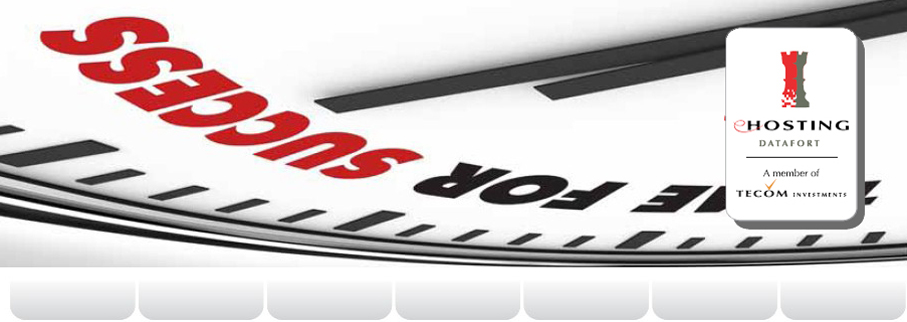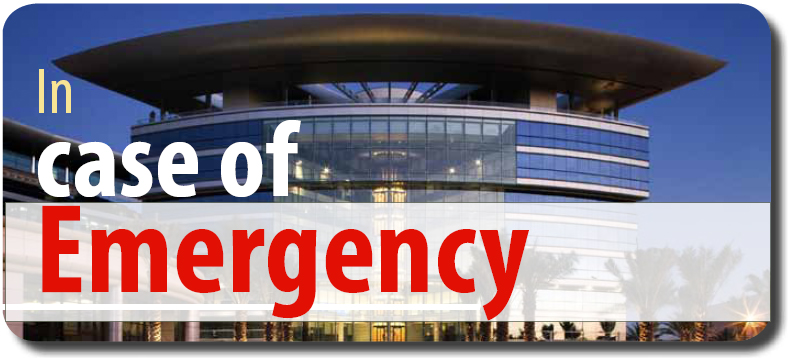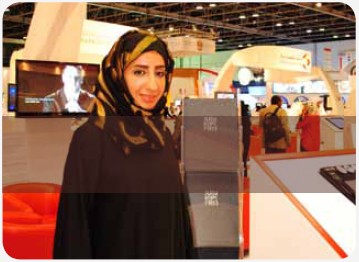
Dubai Airport Freezone |
 |
Case Study

With increasing competition in the Middle East for commercial tenants, companies such as Dubai Airport Freezone are turning to technology to give them a leading edge. One such technology that DAFZ has recently employed to help it achieve its strategy of not just retaining its existing tenant, but capturing new ones, is disaster recovery.
Arabian Computer News- September 2011
With the rapid increase in crucial data being produced by enterprises not just in the Middle East, but around the world it is little surprise that more, and more companies are turning to disaster recovery providers to ensure that their valuable assets are adequately protected.
However, it isn’t just individual corporations that have begun looking at the benefits of disaster recovery. Some business service providers are now looking at the service as the perfect value-add to attract customers from rivals.
One such organisation is Dubai’s Airport Freezone. As with the rest of Dubai, there is an oversupply of commercial space within the Emirates’ freezones, and so operators are having to look to other services and benefits to differentiate themselves from the competition. In order to ensure that it retains its current clients, as well as attracts new ones, the company decided to offer disaster recovery services.
However, at the time, the company did not have any disaster recovery service in place. Any solution it implemented would have to be from the ground up. After a period of planning and evaluation, it was decided that the organisation would seek a solution that would not only provide real-time data replication, but also meet a government directive to ensure business continuity.
In order to ensure that it was able to provide the necessary level of service to its clients, the company decided to turn to an outside provider. After looking around the market, the company settled on eHosting DataFort.
“eHosting DataFort provided Dubai Airport Freezone with a disaster recovery hosting environment at its secure datacenter,” says Director of Information and Communication Technology at DAFZ, Buthaina Bin Fahad. “In addition, eHDF’s partner Double-Take supported the implementation with its replication software installation and configuration.” According to Bin Fahad, the company chose eHDF due to its reputation for the high standards of maintenance at its datacentre.
Because it needed to work from the ground up to implement the disaster recovery solution, it began by identifying its critical applications, and the data produced by them, Bin Fahad reveals. “The disaster recovery site is an exact replica of the production site. In the case of any disaster, there would be a seamless failover to the disaster recovery site.
The economy of scale provided by the size of the freezone, and its combined purchasing power, meant that running a hot site was more of a realistic proposition than it would be for any of the companies by themselves. Despite that, the company was keen to ensure that costs were kept to the minimum necessary to run a hot site. “The disaster recovery site has been virtualised for efficient resource utilisation, which results in cost savings.”
Bin Fahad also identified other benefits in its decision to contract eHDF to provide its disaster recovery solution. “eHDF is also providing 24/7 monitoring and managed security, which helps identify potential threats and their impacts to DAFZ, while also providing a framework for building resilience, and the capability for safeguarding the interests of its key stakeholders, reputation, brand, and valuecreating activities,” she adds.

Buthaina Bin Fahad,
Director of Information & Communication Technology
DAFG
The company was also acutely aware that running a hot site can also have huge data storage requirements, due to the sometimes unavoidable occurrence of data duplication. However, eHDF’s partnership with Double-Take has allowed the company to ensure that data duplication is kept to an absolute minimum. “Double-Take’s involvement in the project brought in an added value as its solution goes beyond periodic replication, to provide continuous data protection. It also ensures minimal data loss, and immediate recovery from any disaster or system outage.”
According to Bin Fahad, Double-Take’s approach to data replication was another reason the company decided to contract the services of eHosting DataFort. “It continuously captures byte-level changes as they happen, and replicates them to one or more target servers at any location, either locally or at the recovery site many miles away.”
The need for this sort of approach was identified early on in the tendering process, claims Bin Fahad. She explains that the company had already developed a checklist of features and services that its disaster recovery programme would require in order to be successful.
“DAFZ, in the process of developing a business continuity plan, had well defined recovery time objectives and recovery point objectives,” she says. “In order to achieve these, we decided to set up a disaster recovery site in partnership with a provider that could satisfy our RTO and RPO requirements.”
Operating under the direction of chairman H.H. Sheikh Ahmed Bin Saeed Al Maktoum, Dubai Airport Free Zone offers its tenants a central base of operation, near to Dubai International Airport. Its tenants include Heinz, Volkswagen, and Airbus, amongst others.
Despite that, the company took an active role in the roll out and development of its disaster recovery strategy. “DAFZ management was actively involved in setting up the disaster recovery site, and was instrumental in overcoming many challenges, including providing budgets, resources, and guidance, and so on.”
However, despite having a clear idea about what it needed from its disaster recovery solution, the biggest challenge was finding a partner that could provide it with everything it needed. “One of the many criteria for the disaster recovery site was the location, as well as the accessibility to both physical as well as network connectivity from the live site.” Luckily, as Bin Fahad explains, eHosting DataFort and Double-Take fit the bill. “[They] provided us the perfect solution to overcome this challenge with extensive testing during implementation. Since some of the applications are custom build, we had to monitor and ensure test data integrity, and consistency across the sites.”
The company faced the same strategic decision as others have in the Middle East in recent years: to build internally or outsource. The company chose the latter, with the reasons behind the decision echoing those of enterprises who have gone down a similar path. “The clear benefits of investing in a robust disaster recovery site, and a real-time replication solution in partnership with eHosting DataFort and Double-Take includes the fact that we had to make no capital investment to build our own disaster recovery site,” she says. We also have benefited from reduced operational and capital costs by moving to an online replication system.” However, the service itself wasn’t the only thing DAFZ received from eHDF. “The implementation and testing of the replication process was completed in just five days. In addition, knowledge transfer sessions were conducted by providing training to the DAFZ IT department,” she explains.
The company also received a number of other benefits from the decision to outsource, besides a reduced amount of capital expenditure, and improved data management. Bin Fahad adds that it has not only allowed it to provide the added service which it had identified earlier as a strategic advantage over rival free zones, it also helped to reduce other issues. “Some of the benefits we’ve gained through this decision is an increase in customer confidence in DAFZ by knowing that there is a business continuity plan in place, protection of the organisation’s key assets, as well as ensuring the safety of our customers data. It has also given us the added advantage of enabling faster decision making during a disaster, as well as minimising legal liability, and downtime,” she adds.
Organisation: Dubai Airport Free Zone
Industry: Free Zone
Challenge: To provide a disaster recovery solution that would protect its own data, as well as offer it as a value-added service to its tenants.
Solution: An outsourced hot-site from eHosting DataFort and Double-Take
Project Length: 2 months